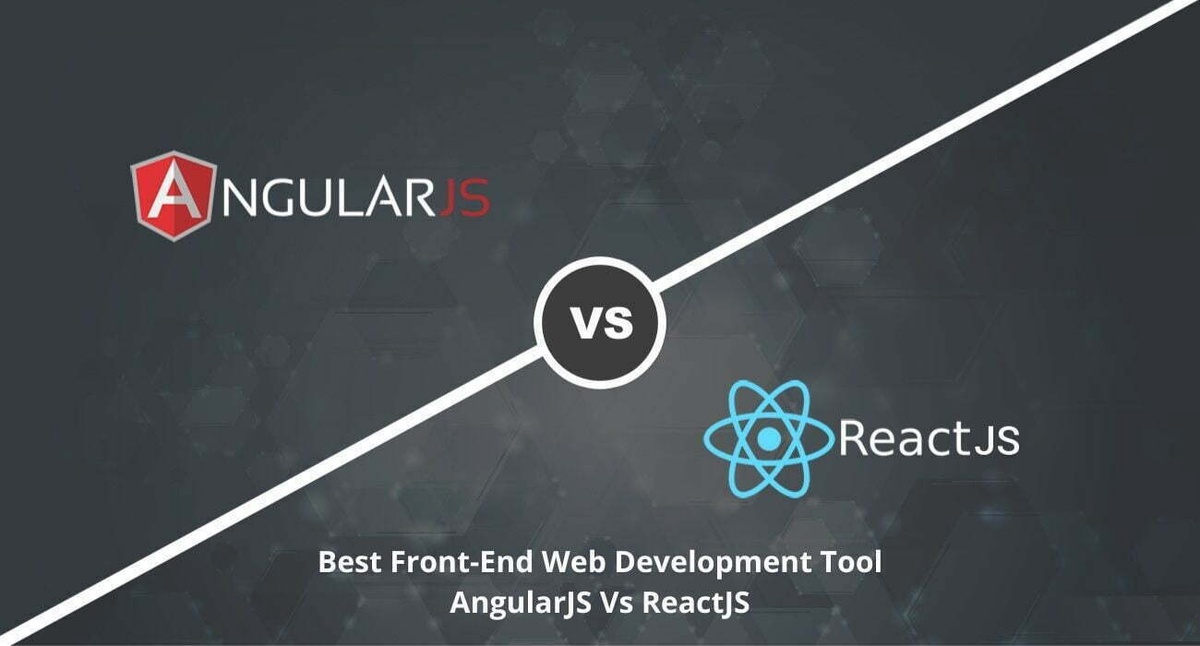“Introduction” When building web applications, you need to manage collections. From technology to tool, database interface, components and finesse, every aspect must be approached with great care.
To start with, the first thing you should focus on is the best website builder. Sure, there are many options, and choosing one is more or less a double-edged sword. What's best in one may not be the same in the other. The choice is therefore a difficult task.
If you are planning to design the front-end of your application, you may have come across two popular and widely used JavaScript web development frameworks, AngularJS and ReactJS. This is where distinguishing between the two and determining the best framework for web development is a difficult process. But don't worry, we'll take care of you. The purpose of this article is to familiarize you with each system, document the comparison, and then help you choose.
AngularJS
Launched in 2009, the system is almost a decade old and a Google product. Designed as an open source website development platform, the tool follows the MVC framework and has been proven to streamline the end-to-end development process. Whether you want to build a single page app or one that is highly functional and fun, AngularJS ticks all the boxes. Different experts consider AngularJS to be an all-in-one front-end web development solution that provides a variety of tools for your programming tasks. If you are looking for AngularJS programming skills, consider working with a reputable AngularJS development company to leverage the full potential of this framework.
ReactJS
React entered the development industry several years later than Angular. It was back in 2013 that social media giant Facebook announced the launch of a front-end web development platform called React. Known for its excellent web design and interactivity, React is also an open source platform for front-end website development. Using React, developers can create both mobile apps and web apps with one page. The main principle behind React development is the need to deliver scalable, fast web applications.
Well, the basic concept of both technologies seems awesome; both have different functions and features. Without wasting too much time, let’s take a look at the different features and see what makes them unique and ultimately figure out the ideal framework for website development.
Comparing AngularJS and ReactJS: A Comprehensive Analysis
Framework vs. Library
The first and foremost difference between the two lies in how they are defined. Where Angular is a framework, React is basically a JavaScript library. Obviously, Angular can handle all your development needs, React basically works for maintaining the application. New tools must be added during the development process to fully develop the application. This simplifies the whole part as the individual parts are used together for the final work. So, if you need to modify or change any of the components, you can do so separately without affecting the entire application.
Architecture
Next, in our list is the architecture of the two front-end web development tools. As mentioned above, AngularJS follows a model-view-controller approach to architecture. That means they have specific objects for the view, a separate router for the control layer and separate services that meet the needs of the backend layer. In contrast, ReactJS includes Flux architecture. Although similar to an MVC framework that includes a model, view, and controller, it is similarly designed to facilitate one-way data flow.
DOM
Angular's end-to-end processing takes place on Real DOM and supports the concept of bidirectional data flow. This means that any changes made to the application model are reflected in the view. Changes added to the view also introduce changes to the model, updating it along the way. React, on the other hand, works on a virtual DOM and adheres to the terminology of one-way data flow. Data starts from the event view and eventually goes to the store, where it is updated based on the interaction of the page with the user.
Performance
Naturally, React leads the app industry. The fact that it uses a virtual DOM, the performance is higher because it reduces the number of instructions issued in the system. Angular is known for low application performance because it can’t perform well in dynamic and complex applications.
The Learning Curve
We are familiar with the concept of Angular as a framework and React as a library. Instead, developers who plan to dabble in AngularJS programming should put in extra effort when it comes to learning it. From typescript to MVC, Angular has a lot on its plate. Other important features include:
- Directives
- Modules
- Decorators
- Components
- Services
- Dependency Injection
Also, Angular has strict guidelines that a developer needs to follow when developing front end web applications.
React, being a library, there are fewer components that a developer needs to learn. The core elements include:
- Syntax of JSX
- Knowledge of Components
- Internal State Management
- Configuration Props
- Routing
- State Management With the Help of Redux
Community Support
And finally, we will consider the popularity of two frameworks/libraries. Having been in the industry for a long time, both bring great support to the community. Angular is of interest to companies looking to create feature-rich applications built around core principles; React is the first choice for organizations looking to deliver flexible solutions.
Conclusion
Choosing between AngularJS and ReactJS depends on the project requirements and developer preferences. A mature framework, AngularJS offers an end-to-end solution thanks to its MVC framework, but requires a rigorous learning curve.
ReactJS, a flexible library, has excellent performance due to its virtual DOM and simple learning curve. Both have strong community support. AngularJS is suitable for complex applications, while ReactJS is best for dynamic projects. Ultimately, the decision must be tailored to the specific needs of the project and the expertise of the development team.
Looking to hire AngularJS developer for your website? Drop your inquiry at sales@iihglobal.com.


No comments yet